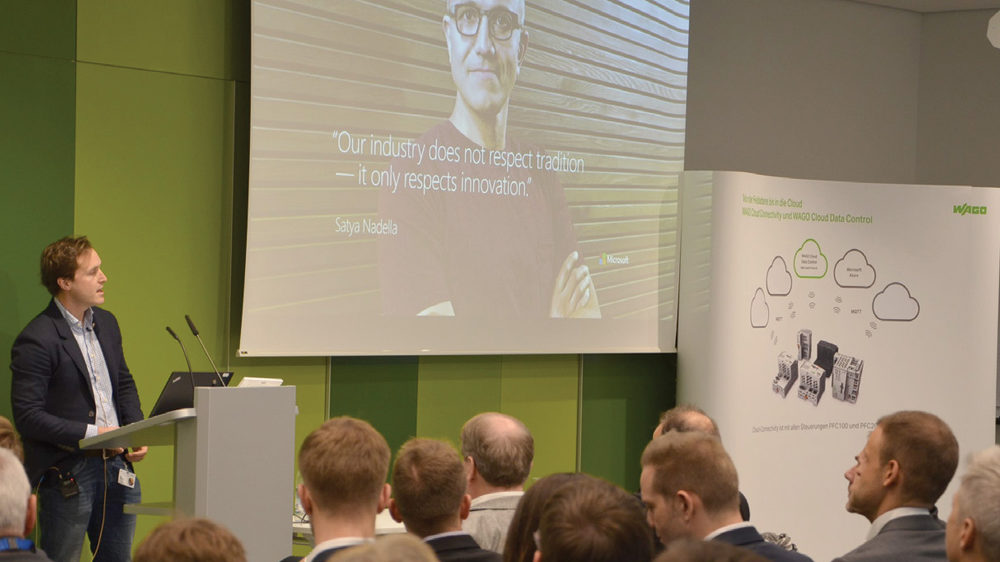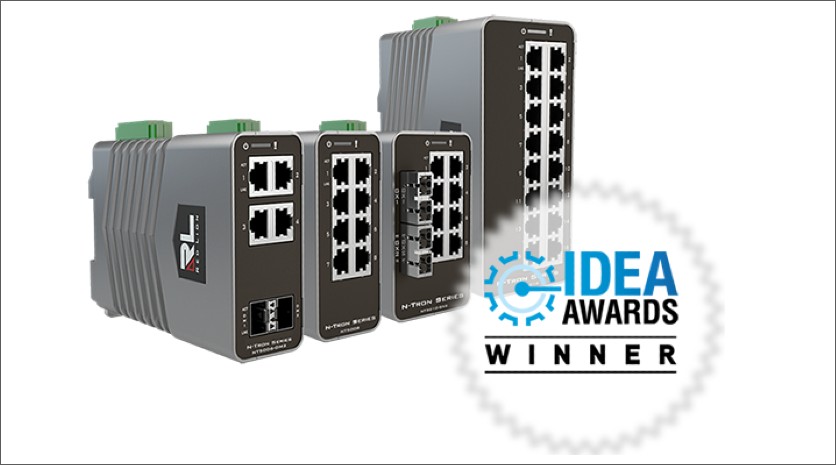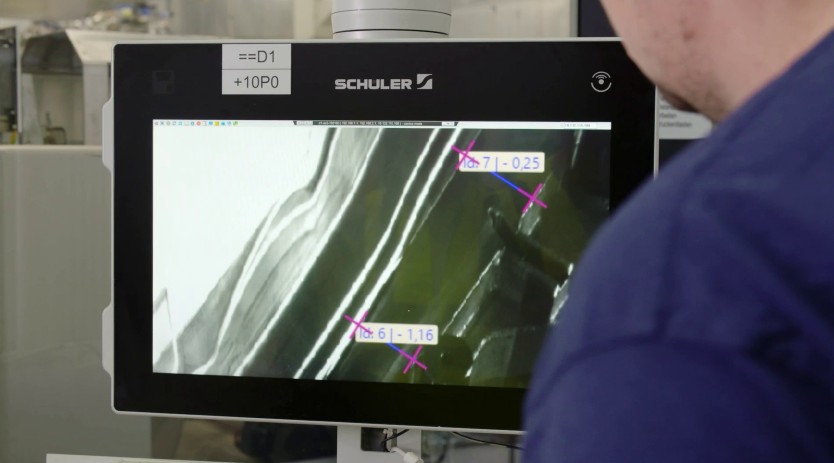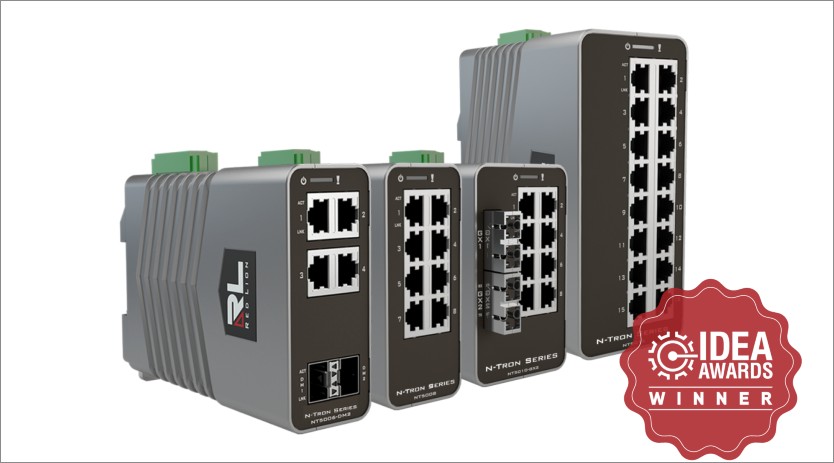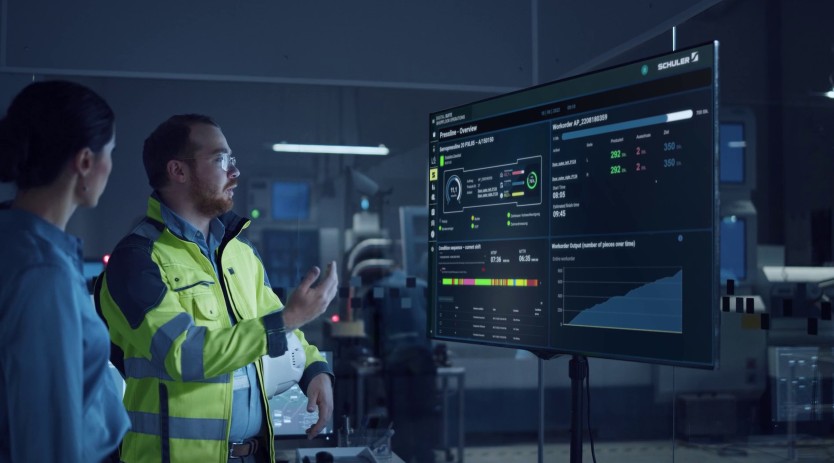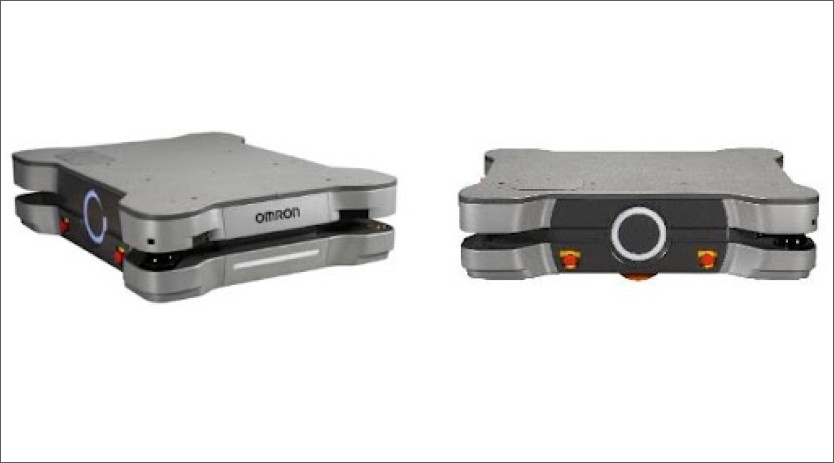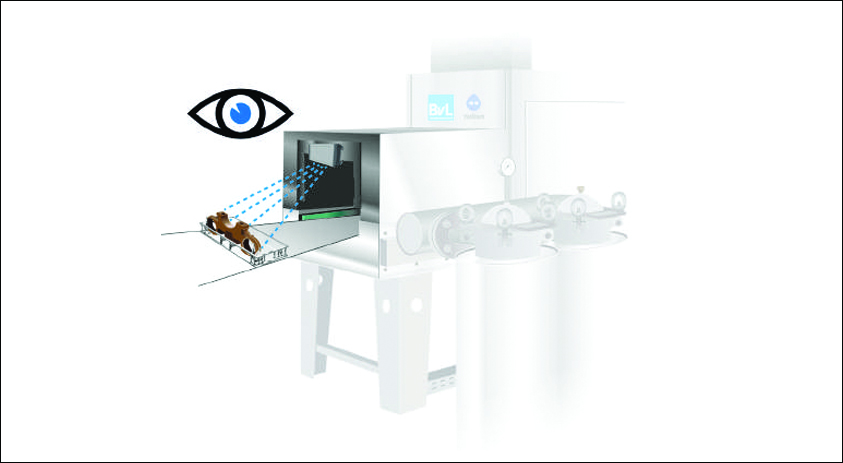Successfully networked
September 12, 2018 3:19 pm
Data in the cloud, added value in the company: In a series of presentations about the “Connected Factory”, Microsoft and WAGO demonstrated how companies can profit when they combine their production and systems data in a cloud.
Thorsten Cleve, Director of Manufacturing Industry at Microsoft Germany, sums up the development toward Industry 4.0 and the Connected Factory: “In the digital transformation of today, we no longer discuss ‘if’, but ‘how’”. The integration of production chains, logistics chains and value added chains provides industrial companies with greater agility, ensures more efficient processes, creates security, and facilitates greater customer focus.
Cleve and other experts provided answers to questions about “how to’’ at the Microsoft Connected Factory lecture series. The event was held at the end of last year at the software company’s new German headquarters. The core concerns in the design of a networked factory focus on recording, integrating, and evaluating production and other data. These were good reasons for Microsoft and WAGO to partner in this event. WAGO combines automation technology and IT, thus creating a link, with their products and solutions, that connects the physical world of machines, systems, and devices on the one hand to the digital sphere of data and analysis on the other.
In the lectures, experts from Microsoft and WAGO provided information to the 100 participants from industrial and consulting firms about how corporations can network their data to generate added value. In addition, the participants had the opportunity to use their newly acquired knowledge in a hands on workshop led by experts from WAGO.
“Signals are recorded where they are generated”
One focal point of the lecture series was on cloud solutions, which WAGO can provide to support clients during the digital transformation. In his opening presentation, Jürgen Pfeifer, Account Manager Automation at WAGO, described the challenges many companies currently face: “Industrial plants often maintain a very heterogeneous pool of equipment. How do you get data from these systems? How do you combine them? In short: How do you create a Connected Factory?” The answer lies in the PFC family of controllers from WAGO. These controllers collect data from the field level, encrypt them using TLS, and transmit the encrypted data to Microsoft’s Azure Cloud using the MQTT protocol. There data can be aggregated and evaluated. “The signals are recorded where they are generated. This eliminates diversions and software engineering expenses,” according to Pfeifer. The WAGO PFC is Azure certified. Pfeifer continues, “Due to the variety of protocols and standards that the PFC supports, facilities are essentially not subjected to limitations on connecting systems and equipment.”
The WAGO Cloud Data Control functions as the user interface for customers – this is an out-of-the- box application on Azure, which clients can use through a standard web browser, regardless of location, to access functions like controller, project, and user management, system monitoring, or report generation. “Any PLC expert can handle this immediately. However, you don’t have to be an IT specialist in order to use it,” promised Pfeifer. His advice to the audience was to, “Just try it out!”
Two versions of the Cloud
Frank Schmid, Head of Business System Solutions at M&M Software, a WAGO subsidiary, also emphasized how user friendly the software is. “Configuring the connection to Azure is performed using the local web server. Any PLC programmer can do this,” stated Schmid.
WAGO offers its Cloud in two versions: The first represents as “Software as a Service” (SaaS), in which WAGO takes on the role of cloud operator. Customers connect their WAGO controllers to the cloud and independently create their own accounts and projects. The second allows customers the possibility of creating their own cloud with WAGO. “We offer this proposal to companies that have a lot of systems to link in, and who want to configure the cloud to their own business purposes. In contrast, the SaaS model is aimed at companies that want to quickly start profiting from the cloud at low cost,” explained Schmid.
Security in the Cloud
Microsoft Manager Thorsten Cleve also discussed some of the higher level goals that industrial companies can address using digital transformation. “This primarily concerns thoroughly understanding what the customer wants more quickly, and then translating this information into one’s own processes,” summarized Cleve. Max Morwind, Technology Advisor IoT at Microsoft Germany, used specific numbers to emphasize the added value offered by digitized production using cloud solutions.
For example, industrial plants could increase their productivity by an average of 17 to 20 percent by designing a Smart Factory. However, to date a mere seven percent of these companies have implemented realtime solutions for monitoring the entire production process.
What is preventing corporations from using the cloud?
One essential reason, as it became clear in discussions with participants during sessions and breaks, is a concern about data security. Dr. Holger Krenn, an expert from Microsoft, referenced the extremely high security standards of the Azure cloud. The IT giant employs 5,000 security experts, whose sole job is to ensure the security of Microsoft’s systems and applications. Schmid also stressed the high priority of security in the WAGO cloud. Among other points, the expert referred to the encryption of incoming and out going data traffic, and emphasized that Azure services and resources are not shared between customers.
Cookie Consent
We use cookies to personalize your experience. By continuing to visit this website you agree to our Terms & Conditions, Privacy Policy and Cookie Policy.



